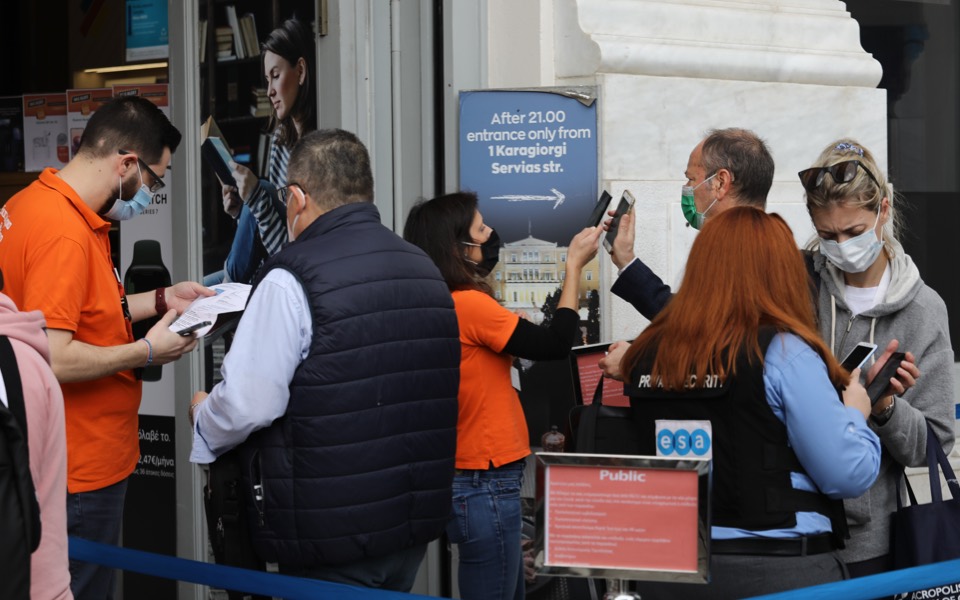Government challenges and risks

The pandemic has taken a turn for the worse again in most parts of Europe, and especially so in Greece where the rate of vaccination is well below the EU average. With more than 5,000 new cases being confirmed every day for the past week and the death toll exceeding 16,000, the surge is showing no sign of abating. Experts, meanwhile, are already bracing for a million new infections over the next three months that will push the National Health System – and its exhausted doctors and nurses – to its limits.
Despite the grim reality of over a thousand fatalities in one month and the number of intubated Covid-19 patients in the 500 range, the government insists on the narrative that Greece is getting back to normal. It argues that the pandemic is now a pandemic of the unvaccinated and vows no more nationwide lockdowns that would have a negative impact on the economy and Greece’s fiscal performance. In a bid not to displease some of its traditional supporters, last week it even went as far as to claim that attending church is as vital to some people as food and medical care, which is why rapid tests are not required from churchgoers. It is a position that denotes fear of the Church, it has absolutely no scientific basis and undermines all the hard work that has been done by this government over the past year-and-a-half to contain the virus.
Every reasonable person believes that churchgoers should be among the first required to submit to stringent testing. To begin with, they tend to be older and therefore more at risk of falling ill, needing hospitalization or even dying if they contract Covid-19. Secondly, it would also serve to send a stern message to the clergy, a good proportion of whom, and low-ranking priests in particular, are anti-vaxxers and largely responsible for the vaccine hesitancy among hundreds of thousands of devout Greeks. The third reason is that there are around 550,000 unvaccinated senior citizens in Greece right now who could be convinced to get the shot instead of having to get tested every week to go to church.
The government’s confounding – from an epidemiological perspective – stance toward the Church strengthens the belief that the center-right New Democracy party is completely incapable of assuming the political cost of taking bold steps that would deal with the pandemic decisively, such as making vaccinations mandatory for more sectors than just healthcare workers, like civil servants – as Italy and the United States have already done – or workers in food and drink service.
It has also become apparent that the longer Church renegades and other anti-vaccination proponents are not dealt with swiftly and summarily, the more the ongoing effort to achieve herd immunity is undercut. Moreover, numerous lawyers and doctors who are exploiting people’s superstitions and ignorance to line their own and others’ pockets by stoking the anti-vax movement have yet to be brought to book.
By cowering from the big decisions, the government risks thrusting the country into new misadventures and seriously harming the image of efficiency it has tried so hard to build up and done so quite successfully – except for the pandemic.
Prime Minister Kyriakos Mitsotakis takes every opportunity to say that Greece will not go back into lockdown and to express hope that the virus will be held back by Christmas, once a few hundred thousand citizens get vaccinated and more achieve immunity from surviving Covid. If, however, this wall of immunity is not built fast enough and the numbers continue at the same pace as the past week or so, it will be almost impossible to prevent intensive care units from being overwhelmed. This, in turn, would lead to the collapse of the National Health System, which would demand a nationwide lockdown. Otherwise, doctors will find themselves in the position of their Italian colleagues in March and April 2020 – having to decide who gets intubated and who does not, who lives and who dies.





